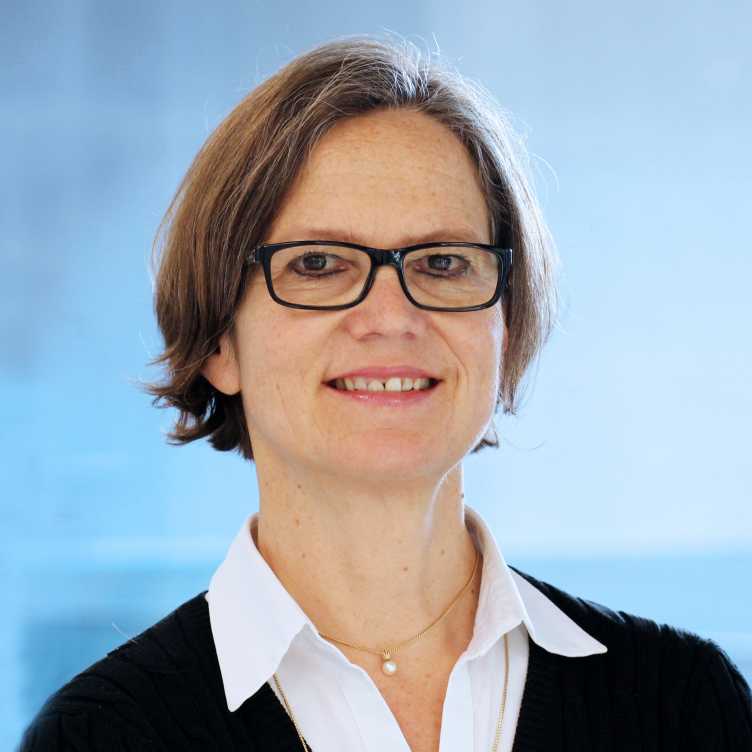D-BIOL under new management
As of October 1, 2022, the D-BIOL is led by a new Executive Committee, the election already took place in May. The three-member board now consists of Prof. Sabine Werner (IMHS, Head of Department), Prof. Markus Stoffel (IMHS, Deputy Head of Department) and Prof. Sam Zeeman (IMPB, Director of Studies).

Curriculum vitae Prof. Sabine Werner, Head of Department
Sabine Werner has been Professor of Cell Biology at ETH Zurich since 1999. She studied biochemistry in Tübingen and Munich and received her PhD from the University of Munich after completing her dissertation at the Max Planck Institute of Biochemistry in Martinsried in the department of Prof. Peter Hans Hofschneider. She then moved to the University of California San Francisco, where she worked as a postdoctoral fellow in the laboratory of Prof. Lewis T. Williams on the molecular mechanisms of action of growth factors. From 1993-1999, she was a group leader at the Max Planck Institute of Biochemistry in Martinsried, Germany. From 1996-1999, she was Hermann and Lilly Schilling Professor of Medical Research and also Associate Professor at the University of Munich.
Research Area
The Werner Laboratory studies the molecular and cellular mechanisms of tissue repair, with particular emphasis on the role of growth factors and their downstream signaling pathways in this process. In particular, the group is interested in the parallels between wound healing and cancer at the cellular and molecular levels.
Link to the website of the Werner lab.

Curriculum vitae Prof. Markus Stoffel, Deputy Head of Department
Markus Stoffel has been a full professor at the Institute of Molecular Health Sciences at ETH Zurich since July 2006. He was born on March 13, 1962, in Cologne, Germany, and studied medicine at the Universities of Cambridge, UK, and Bonn, Germany. After a two-year residency in internal medicine at Eppendorf Hospital in Hamburg, Germany, he spent three years as a postdoctoral fellow and assistant professor in the laboratory of Prof. G.I. Bell at the Howard Hughes Medical Institute at the University of Chicago, USA. In 1995, he moved to the Rockefeller University in New York as Assistant Professor and Head of the Metabolic Diseases Laboratory. In 1999, he was promoted to full professor.
Research Area
Integration of extracellular hormone and nutrient signaling into comprehensive gene expression patterns results in tightly choreographed phenotypic responses that regulate metabolism and differentiation. The overarching research interest of the group is to determine the basic genetic/biochemical mechanisms that regulate glucose and lipid metabolism by investigating the transcriptional and translational regulators that control energy homeostasis. The importance of genetic regulation in maintaining glucose homeostasis is underscored by the many examples of aberrant signal transduction and transcriptional activation leading to type 2 diabetes and the development of secondary complications.
Link to website of the Stoffel lab.

Curriculum vitae Prof. Sam Zeeman, Director of Studies
Sam Zeeman started his position as Assistant Professor of Plant Biochemistry at the Institute of Molecular Plant Biology at ETH Zurich in April 2005. In 2010, he has was promoted associate professor, since 2016 he has been a full professor at the same institute.
Sam Zeeman was born in England and studied natural sciences at Gonville and Caius College, University of Cambridge (1989-1992). With a scholarship from the Gatsby Charitable Foundation, he continued his studies at the Institute of Plant Sciences, Cambridge, earning a PhD in plant biochemistry under Prof. Tom Rees (1992-1996). From Cambridge, he moved to the John Innes Centre (Norwich, UK) and worked as a post-doc with Prof. Alison Smith and Cathie Martin until early 2002, when he took up an NCCR-funded Assistant Professorship in Plant Biotechnology at the Institute of Plant Sciences, University of Bern. In 2004, he was elected as an EMBO Young Investigator.
Research area
The Zeeman Lab's research has three main objectives. First, the group is concerned with how the enzymes of starch synthesis work in a coordinated manner to produce the semi-crystalline structures in starch granules. Second, to figure out how starch is remobilized in plant cells to release stored carbon for metabolism. Third, members of the research group aim to understand how the diurnal turnover of starch is related to the rest of the metabolism and tailored to optimize growth under different environmental conditions.
Link to the website of the Zeeman lab.